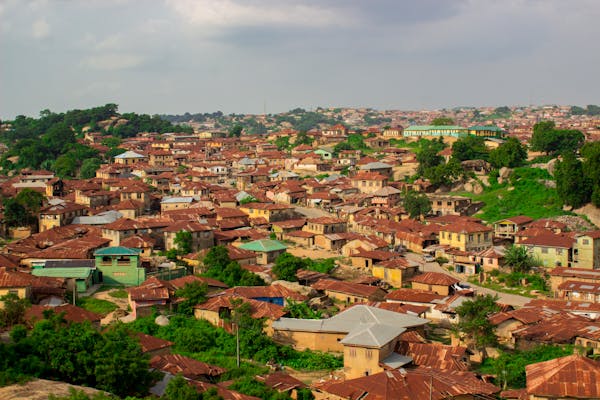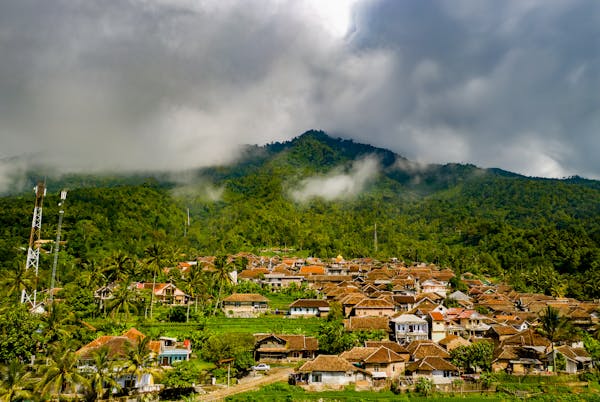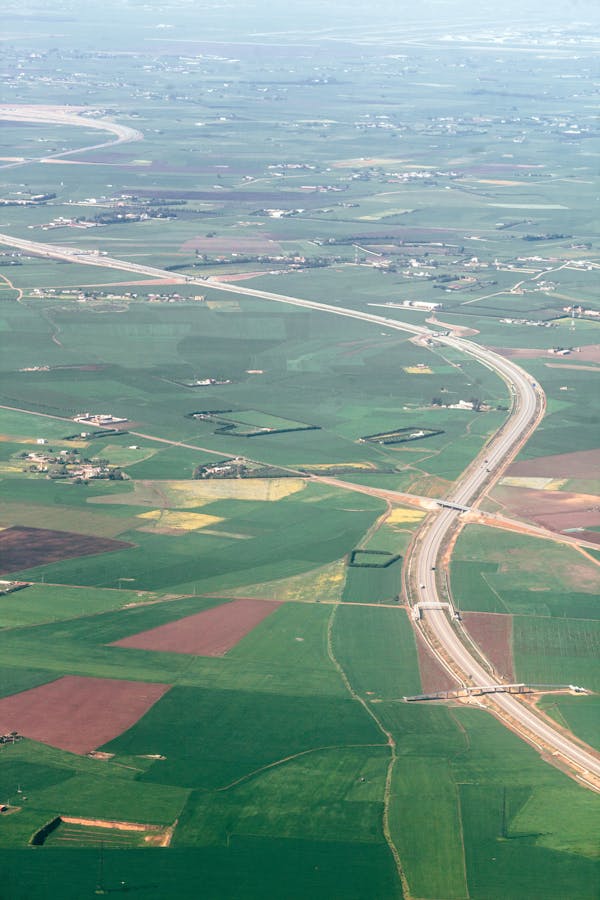
Disadvantages of Living in Rural Areas Worldwide

Disadvantages of living in rural areas; everywhere in the globe, living in a rural location provides a calm haven from the bustle of the big city, together with beautiful scenery and a stronger bond with the natural world. However, people frequently deal with a unique mix of difficulties and drawbacks associated with this exquisite surroundings. Ruggedness and social isolation, as well as restricted access to basic amenities like healthcare and education, are just a few of the challenges that come with living in a rural area. We look the major drawbacks of living in a rural location in this article, which will help readers understand the reality that people face all around the world.
Learn About the Top 10 Global Drawbacks of Living in Rural Areas
Rural living has its allure, but it also has a fair share of difficulties. The quality of life of rural inhabitants may be negatively impacted by a number of issues, ranging from social isolation to restricted access to healthcare services. The following ten widespread negative effects of rural life are experienced all around the world.
Restricted Availability of Medical Services
Insufficient Medical Facilities, Imagine yourself feeling sick, but the closest hospital is several miles away. Due to a lack of healthcare facilities, medical care may be delayed or insufficient in rural regions. Restricted Accessibility of Experts; need to consult an expert? I wish you luck in locating one close by. To receive specialist healthcare treatments, rural populations sometimes need to travel great distances, which may be expensive and time-consuming.
Issues Concerning Emergency Medical Services, every minute matters during crises. On the other hand, inefficient emergency medical services in rural locations may cause a delay in response times and perhaps fatal circumstances.
Economic challenges and a lack of job opportunities
Low and Unemployment Rates, in rural places, finding a good job might be like trying to find a needle in a haystack. Underemployment and unstable finances can result from high unemployment rates and little work opportunities. Local Industries’ Decline; Rural communities’ once-thriving industries may be in decline, which would have an impact on the local economy and job market. Residents’ financial difficulties may get worse as a result of the local industry’ demise.
Restricted Financial Services Access, the dearth of bank branches and other financial institutions in rural areas makes it more difficult for locals to get access to basic financial services like savings accounts, loans, and investment possibilities.
Limited Possibilities for Education
Insufficiently Good Schools, the secret to a better future is education, yet there may not be as many high-quality schools in rural regions. Insufficient availability of well-trained educators and well-equipped schools might impede kids’ academic progress. Restricted Admission to University; do you have aspirations of going to university? The closest institution or college might be hours away. The prospects for advanced learning and skill development available to rural populations may be restricted by the absence of neighboring higher education institutions.
Difficulties in Receiving Special Education Assistance
In rural locations, where specialized educational assistance and resources are sometimes lacking, children with special needs may encounter more difficulties. The learning and development of these pupils may be impacted by restricted access to special education resources. A lack of community resources and social isolation; Effect on Well-Being and Mental Health, mental health can be negatively impacted by loneliness and isolation. The dearth of social connection and community services in rural places can exacerbate feelings of despair, loneliness, and general worse health.
Restricted Support Systems and Social Contact
It might be difficult to form deep ties with people when you live far from your closest neighbor. It can be difficult for those living in rural areas to build strong social networks, which might result in a feeling of social disconnection. Insufficient Recreational Spaces; searching for a place to relax and enjoy yourself? Parks, sports complexes, and cultural institutions are examples of recreational amenities that may be lacking in rural locations. The chances for leisure and enjoyment that inhabitants have may be restricted by the lack of recreational activities.
Though there may be benefits to living in a rural region, such as a close-knit community, it’s important to weigh any possible drawbacks. People may make wise choices about where to live and work if they are aware of these difficulties. Learn About the Top 10 Global Drawbacks of Living in Rural Areas. Although living in a rural location might provide a tranquil diversion from the activity of the city, there are drawbacks as well. Let’s examine a few drawbacks that people who live in rural locations frequently experience.
Inadequate Services and Infrastructure
Subpar Public Transportation and Road Networks, with few public transit choices and badly maintained roads, traveling in rural areas can be difficult. Potholes are your new road companions in this area; forget about speed bumps. To improve the living standards of people living in the rural areas, there should be a deliberate program to improve the situation so as to attain the needed standard.
Restricted Sanitation and Clean Water Access
Obtaining potable water can often feel like a treasure quest in remote regions. Put a stop to fashionable water filters; you may find yourself wishing for a dependable tap that never runs out of water. Problems with Internet connectivity and electricity. Living frugally and accepting simplicity is one thing, but even the most forbearing people will find it difficult to put up with frequent blackouts and slow internet. When the connection accomplishes the detoxifying for you, who needs a digital detox?
Restricted Recreational and Cultural Activities
Insufficient Theaters, Museums, and Cultural Events, Traveling to the closest city may be necessary to locate a bustling museum or to see a play. Viewing cows may become more of your cultural fix than visiting art exhibits. Limited Choices for Dining and Entertainment; disadvantages of living in rural areas; experimenting with foreign cuisines seems like a far-off fantasy when your eating options are limited to your local restaurant and back. Your go-to entertainment strategy could be to curl up with Netflix.
Difficulties in Accessing Outdoor and Sports Activities
Imagine going on a stroll through the forest or playing a little tennis? Recreational activities in remote locations could be as uncommon as seeing a unicorn. It’s nice to embrace nature, but then you start missing a game of badminton. Transportation and Accessibility Issues; limited Choices for Public Transportation, Don’t bother using the train or flying through traffic. When using public transit in a rural location, one may have to wait for the weekly bus, which also serves as a mobile farmer’s market.
Difficulties in Reaching Large Cities
When you consider that the closest metropolitan hub is a long journey away, the brilliant lights of the metropolis could seem like a faraway fantasy. Bid farewell to spontaneous urban adventures. Effect on Everyday Travel and Commuting; when there are few transit alternatives and long commutes, conducting errands or commuting to work can become arduous tasks. That early morning commute calls for skipping the snooze button.
Natural Disasters and Environmental Issues
Disadvantages of living in rural areas, exposure to Severe Weather Events, Living near to nature requires learning to live with its unpredictability. Rural places are not exempt from the vagaries of Mother Nature, be it heatwaves or snowstorms. Climate Change’s Effect on disadvantages of living in rural areas. Climate change affects both rural and urban regions equally, with no discernible pattern of discrimination. Adapting to changes in the environment might provide particular difficulties in rural areas.
Environmental Challenges
While protecting the environment is important, putting sustainable methods into reality may be difficult in rural regions. It takes careful dancing to maintain natural resource protection while advancing society. While there are many benefits to living in a rural region, it’s important to weigh any potential disadvantages as well. Living in a rural area isn’t all beautiful scenery and peaceful sunsets; there are issues with infrastructure and few cultural options.

Conclusion on disadvantages of living in rural areas
Rural living poses a variety of issues that might affect inhabitants’ quality of life globally, even though it may also offer peace and natural beauty. The drawbacks of rural life are numerous and substantial, ranging from social isolation and environmental concerns to restricted access to essential services and opportunities.
People who are thinking about living in a rural location may better balance the advantages and disadvantages of living there by being aware of these disadvantages and using them as information to help them make decisions and find solutions.
FAQs on disadvantages of living in rural areas
1. Despite these drawbacks, are there any advantages to living in a rural area?
2. How do people in rural regions usually deal with the difficulties of having less access to medical care?
3. Is it possible for local or government initiatives to lessen some of the financial difficulties that rural inhabitants face?
4. How might social isolation be addressed in rural communities? What are some tactics?









Leave a Reply